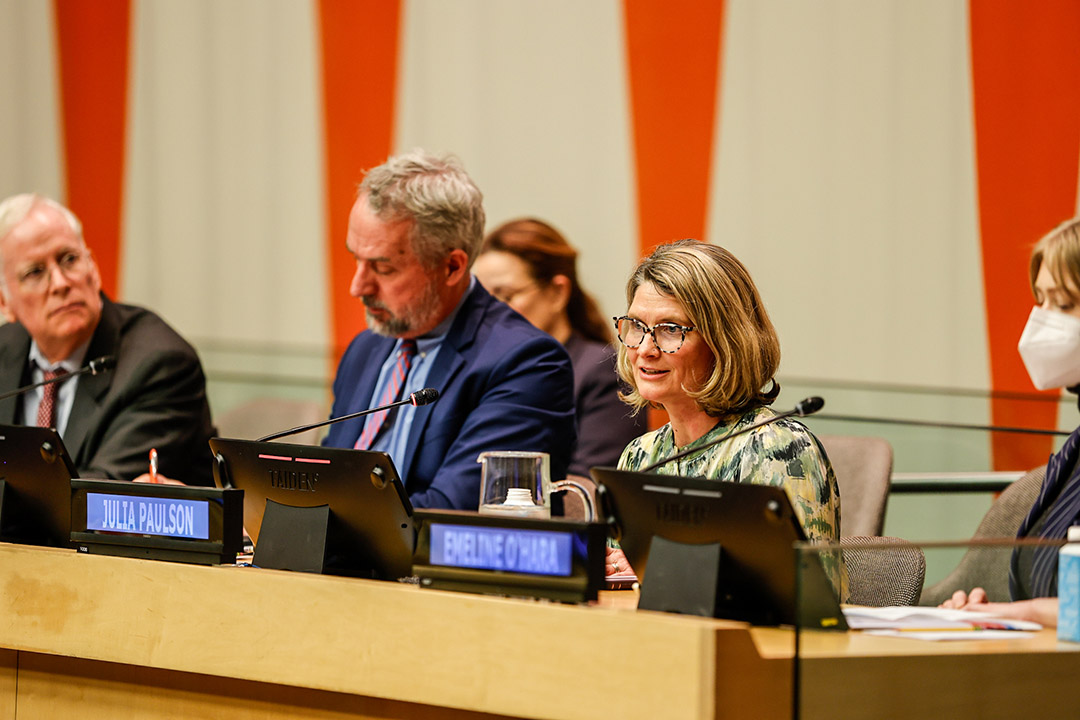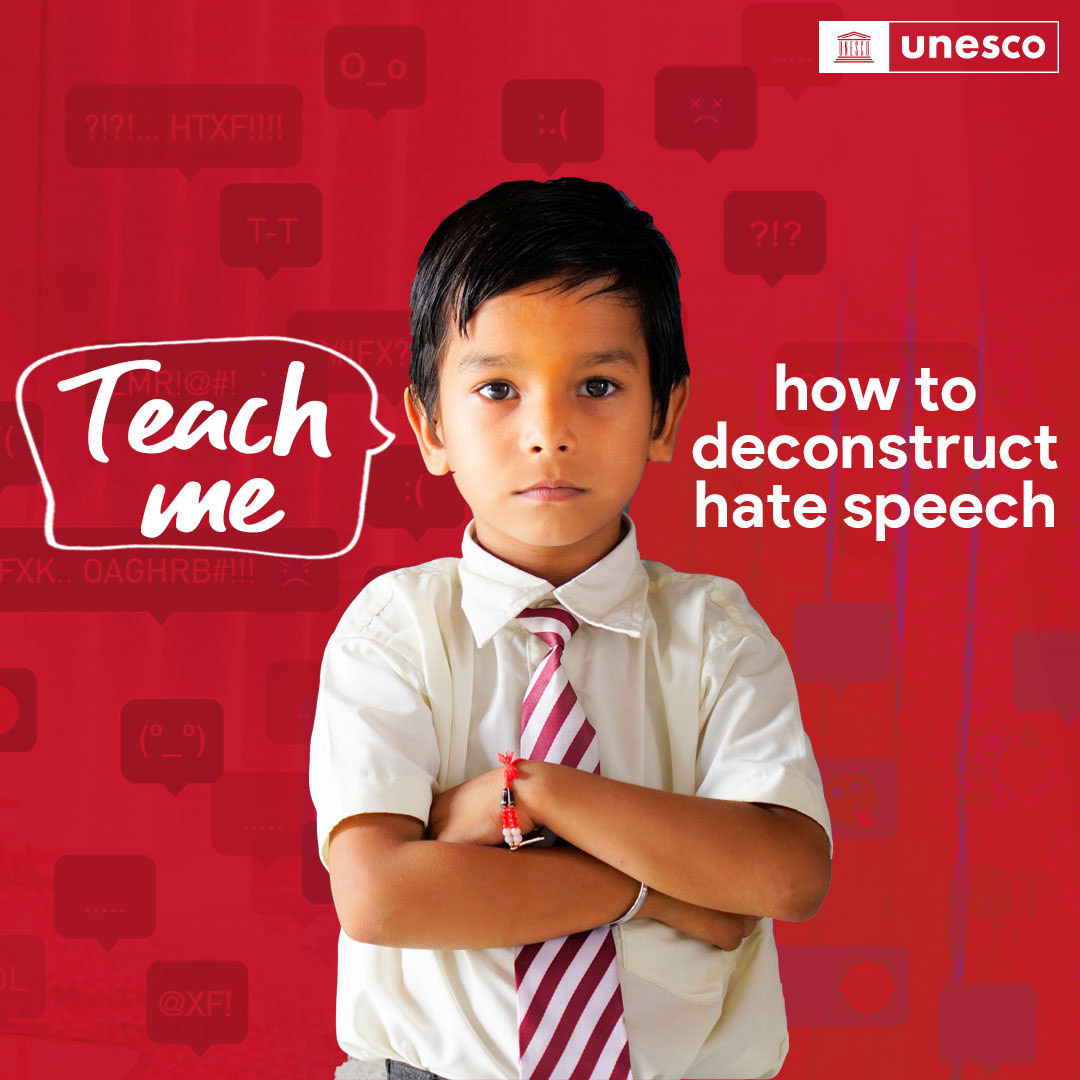
USask dean highlights education as a peace builder at the United Nations
University of Saskatchewan (USask) Education Dean Dr. Julia Paulson (PhD) contributed to a panel on Learning for Lasting Peace, organized by the United Nations Educational, Scientific and Cultural Organization (UNESCO) and held at the United Nations Headquarters in New York.
By Meagan HintherThe event coincided with the International Day of Education, held annually on January 24. UNESCO dedicated this year’s focus to the crucial role education and teachers play in countering the alarming rise of discrimination, racism, xenophobia, and hate speech, paralleled by a rise in violent conflicts.
Paulson shared research highlights from the Education Justice and Memory Network (EdJAM). Led by Paulson, EdJAM is a collaborative, international network of researchers, educators, and civil society organizations committed to creative ways to teach and learn about conflict, violence, colonialism, imperialism, and racism. The network funds projects in 24 countries around the world.
“I believe that reparative education is the greatest hope for peace, healing and transformation,” Paulson told members at the UN. “This conviction comes from my work on the EdJAM project.”
Paulson described how the work of the network is grounded in the idea of reparative pedagogies—teaching and learning processes that acknowledge past injustices and seek to restore relationships.
“These strategies work with learners to challenge the reproduction of inequalities and injustices that have their legacies in past violence,” said Paulson. “These often reproduce themselves in the present, and unfortunately are unchallenged and brought into how learners view the future.”
Paulson highlighted three key findings about reparative education when used in classrooms: these strategies are dignifying, as they humanize and give historical agency to individuals and groups whose story has been largely told as one of victimhood and suffering; they are truth-telling and inclusive of multiple perspectives which enables them to balance an important tension in history education; and they are creative and create art together with learners to share broadly.

“What’s so fascinating to witness, is the way educators can be grounded in truth without making it totalizing in a way that can marginalize and silence,” Paulson said. “This is balanced through the skills and professionalism of teachers and educators. They encourage dialogues, listening and mutual respect, and refuse to give ground to hate speech.”
“Well-supported and resourced teachers are key to a transformative learning environment and a peaceful society,” said Paulson.
This past fall, the College of Education supported opportunities for teacher candidates to learn from organizations such as the Canadian Anti-Hate Network, with workshops focused on recognizing and preventing hate in schools.
“Teachers play a crucial role in fostering a learning environment that is inclusive and restores relationships,” said Paulson. “This can involve recognizing and countering hate speech and being provided with the necessary tools and skills to do so. Reparative education is a part of that goal.”
Article re-posted on .
View original article.
Together we will support and inspire students to succeed. We invite you to join by supporting current and future students' needs at USask.

